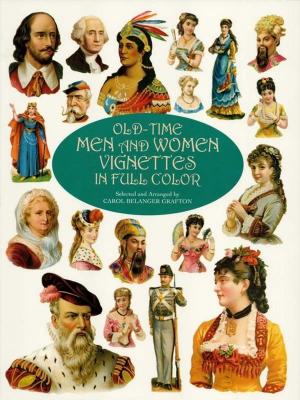The History of the Standard Oil Company
Briefer Version
Business & Finance, Economics, Economic History| Author: | Ida M. Tarbell | ISBN: | 9780486139951 |
| Publisher: | Dover Publications | Publication: | March 8, 2012 |
| Imprint: | Dover Publications | Language: | English |
| Author: | Ida M. Tarbell |
| ISBN: | 9780486139951 |
| Publisher: | Dover Publications |
| Publication: | March 8, 2012 |
| Imprint: | Dover Publications |
| Language: | English |
Muckrakers — a term coined in 1906 by President Theodore Roosevelt — referred to American journalists, novelists and critics who, in the early 20th century, attempted to expose corruption in politics and the abuses of big business. One publication spearheading these exposés was McClures Magazine, and Ida Tarbell was the writer whose dramatic revelations eventually lead to effective regulation of the Standard Oil Company. Her story, serialized by McClure's in 1902 and 1903, tells the history of John D. Rockefeller's company. The first major industrial monopoly in the U.S., Standard Oil, in 1901, was the largest corporation in the country, and at its peak, controlled as much as eighty-five percent of oil refining in America. But with all his wealth and power, Rockfeller could not protect himself from Tarbell. Her story of the company, which became a model for militant journalists in the future, managed to place the blame for increasingly commercialized American ideals and practical behavior at Rockefeller's doorstep. Combining descriptions of his business practices with his personal characteristics and even his physical appearance, Tarbell created an image of a cunning and ruthless person — a picture that not even decades of Rockefeller philanthropy were able to dispel. This edition (the "briefer version" of her book; the original was more than 800 pages.) makes a great muckraking classic much more accessible to readers. As such, it will be invaluable to students and teachers of American economic history and a fascinating read for anyone interested in the muckraking era and the days of unregulated big business.
Muckrakers — a term coined in 1906 by President Theodore Roosevelt — referred to American journalists, novelists and critics who, in the early 20th century, attempted to expose corruption in politics and the abuses of big business. One publication spearheading these exposés was McClures Magazine, and Ida Tarbell was the writer whose dramatic revelations eventually lead to effective regulation of the Standard Oil Company. Her story, serialized by McClure's in 1902 and 1903, tells the history of John D. Rockefeller's company. The first major industrial monopoly in the U.S., Standard Oil, in 1901, was the largest corporation in the country, and at its peak, controlled as much as eighty-five percent of oil refining in America. But with all his wealth and power, Rockfeller could not protect himself from Tarbell. Her story of the company, which became a model for militant journalists in the future, managed to place the blame for increasingly commercialized American ideals and practical behavior at Rockefeller's doorstep. Combining descriptions of his business practices with his personal characteristics and even his physical appearance, Tarbell created an image of a cunning and ruthless person — a picture that not even decades of Rockefeller philanthropy were able to dispel. This edition (the "briefer version" of her book; the original was more than 800 pages.) makes a great muckraking classic much more accessible to readers. As such, it will be invaluable to students and teachers of American economic history and a fascinating read for anyone interested in the muckraking era and the days of unregulated big business.















